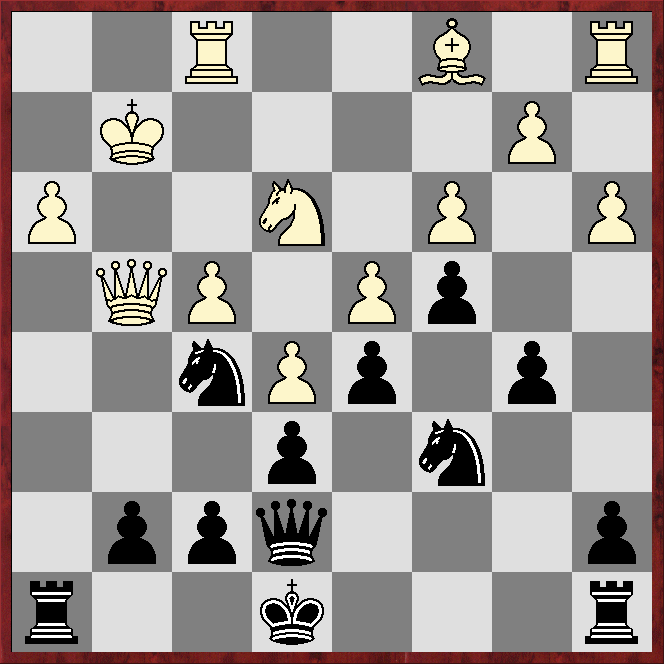*****
*****
*****
*****
*****
*****
Stockfish17 and Dragon1 agree Black has at least the upper hand, presumably based on Black's safer king and White's bad bishop, hemmed in by its own pawns.
Many moves preserve an advantage for Black, including my choice of 21...Nh6, even if it is not the best.
However, the game remains far from simple, not least thanks to White's central space advantage.
One idea I did not consider seriously enough is exchanging knights.
True, this takes pressure off White's king by reducing the number of black attacking pieces, and I was very much focused on attack.
But it has the great practical advantage of leaving Black with much the better minor piece of the two remaining minors, which means Black can continue pressing for a middlegame decision, while at the same time knowing almost all endings with minors still on will strongly favour Black.
In the game, four minor pieces stayed on the board and White eventually was able to swop the bishop for a black knight.
The move 21...Nxe3 may not be the strongest - the engines slightly prefer 21...g6 - but it is arguably best from a practical view.
LESSON: flexible thinking is an important chess skill. I had been looking for a decisive advantage in the middlegame, and was not flexible enough to properly consider the pluses of having a large endgame advantage 'in reserve'.

No comments:
Post a Comment